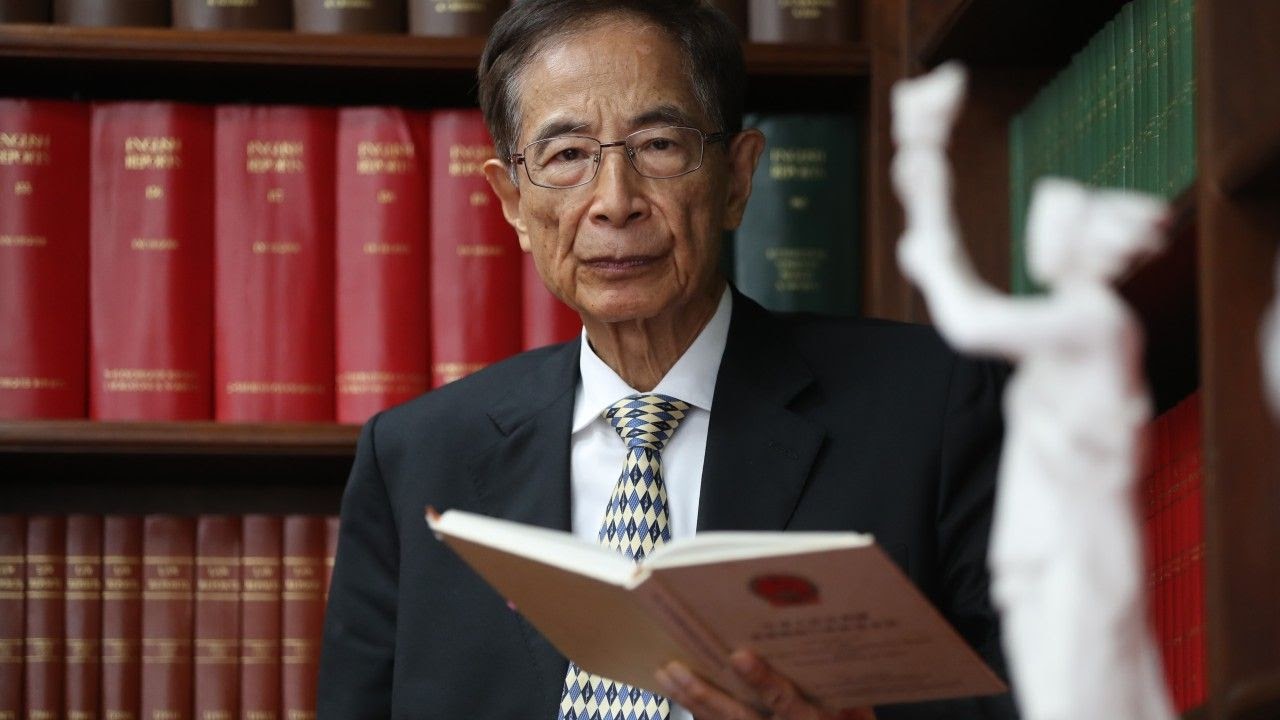Hong Kong rounds up pro-democracy leaders as Beijing asserts power over the city
The Hong Kong government also issued a series of late-night statements eventually agreeing with Beijing that the mainland’s Hong Kong Liaison Office was not bound by Article 22 of the Basic Law, in a major blow to the “one country, two systems” principle.

Martin Lee Chu-ming (李柱銘 Lǐ Zhùmíng), known as the “Father of Democracy” in Hong Kong, was among 15 pro-democracy leaders arrested in the city on April 18. Photo by Edward Wong via SCMP.
Last week, we noted that the rule of law in Hong Kong took another setback when Luò Huìníng 骆惠宁, the top Beijing representative in the city, called for stricter punishments for those who engage in “protest violence” and for the creation of a “public opinion environment” that values stability and security.
Over the weekend came two very significant moves to accomplish exactly those goals of Beijing: Pro-democracy leaders who had led protests last year were rounded up, and the laws governing how Beijing is supposed to interact with the city’s government were radically reinterpreted.
Mass arrest of pro-democracy leaders
“Hong Kong police rounded up at least 15 veterans and supporters of the opposition camp in a swoop on Saturday that netted, among others, media tycoon Jimmy Lai Chee-ying [黎智英 Lí Zhìyīng] and prominent barrister Martin Lee Chu-ming [李柱銘 Lǐ Zhùmíng] for their roles in unlawful protests late last year,” reports the South China Morning Post. A police spokesperson said that “those held were involved in organizing and participating in unauthorized marches on August 18, October 1 or October 20.”
Unleashing the liaison office
Luo Huining is the head of the Hong Kong Liaison Office. According to Hong Kong’s laws, this office is one of three that are “set up in the [Hong Kong Special Administrative Region] by [Beijing].” Therefore, under the “one country, two systems” formulation, the Hong Kong Liaison Office had to “abide by the laws of the Region.” In other words, the office held no actual power in Hong Kong’s government, because Hong Kong is supposed to have a “high degree of autonomy.”
That standard has now been shredded. In reaction to filibustering tactics in Hong Kong’s Legislative Council by Dennis Kwok Wing-hang (郭榮鏗 Guō Róngkēng) and other opposition politicians last week, the Liaison Office and other representatives of Beijing expressed outrage. That, by itself, was not too unusual.
But then the Hong Kong government agreed that Beijing’s concerns are “legitimate,” and issued three extraordinary late-night statements that increasingly parroted Beijing’s interpretation. Per New York Times reporter Austin Ramzy, these statements:
- Endorsed the Liaison Office’s “right to weigh in on legislative committee matters.” (The original statement is now deleted, but preserved in the Hong Kong Free Press.)
- Cut “any mention of Article 22, the part of the Basic Law which states that no department of the central government may interfere with affairs that Hong Kong administers on its own.”
- Clarified that “the central government liaison office doesn’t fall under Article 22.”
“The mere fact that the [Hong Kong] Government has to change its public statements three times to eventually agree with the position of the Liaison Office may serve the best testimony of an interference,” wrote Hong Kong University professor Johannes Chan in a detailed analysis.
What comes next?
Jerome A. Cohen, a legal scholar, calls the mass arrests and legal reinterpretations a “stunning advance toward the Chinese Government’s demolition of One Country, Two Systems in fact, if not in name.” He suggests that the government is trying to provoke a reaction to implement stricter national security laws, or go even further than that:
This week’s actions may well be an attempt by Beijing to provoke a broad popular reaction that will then provide an excuse not only to finally bulldoze success passing controversial national security legislation in HK under Basic Law Article 23, but also to call off the crucial September election scheduled for HK’s Legislative Council.
Antony Dapiran, a Hong Kong–based lawyer and chronicler of the protests, commented more on the implications for the upcoming Legislative Council elections in September:
…this weekend’s arrests may be part of a plan to convict and disqualify as many pan-dem politicians as possible to prevent their participation in those elections. This last week has seen only the first moves in what will be a multi-month campaign.
—Lucas Niewenhuis






